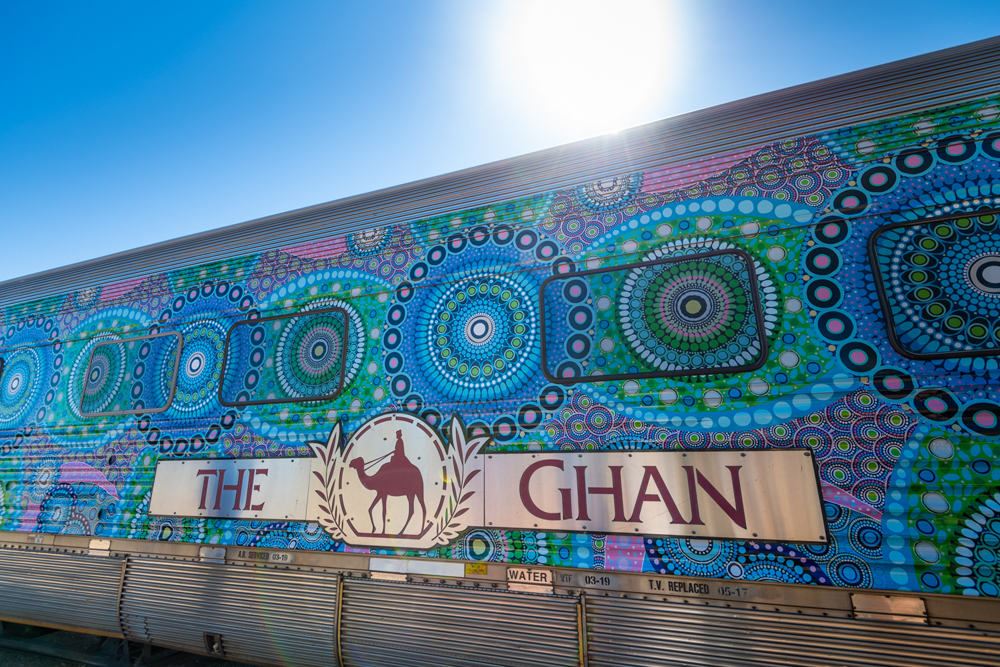
Locomotive wraps Railroad paint schemes span the color spectrum, from the dull to the fluorescent, the drab to the flamboyant, but not every railroad has the time, money, brand guidelines, or spare rolling stock to allow for frequent livery changes. Painting is an expensive and time-consuming process, with the results expected to last for years […]
Read More…
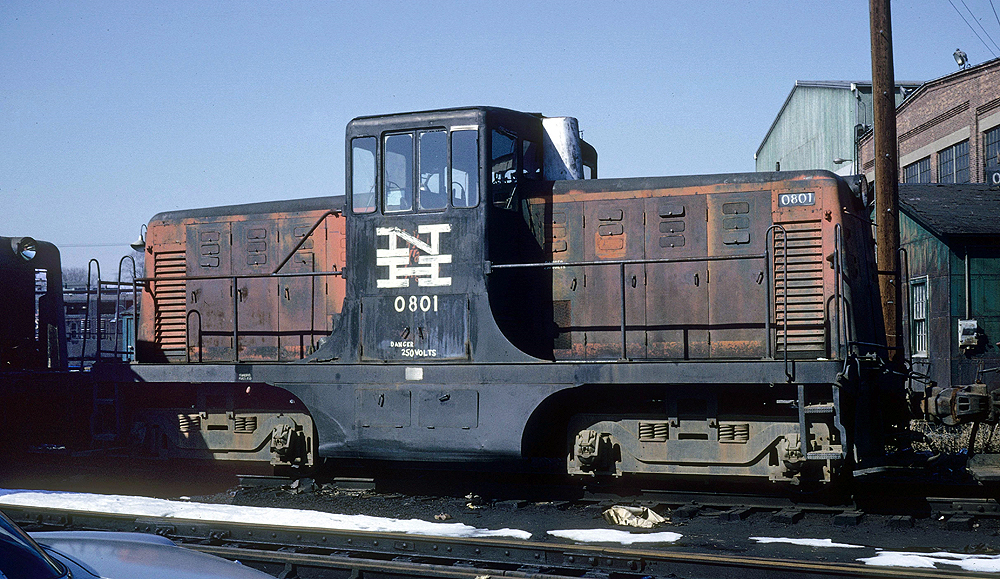
The best-known and most-popular early General Electric locomotives are its 44-ton and 70-ton switching locomotives, both of which found favor among large Class I railroads as well as short lines and industrial users. The GE 44-ton locomotive was significant, as it was the heaviest locomotive that, by operating rules, could be run by an engineer […]
Read More…
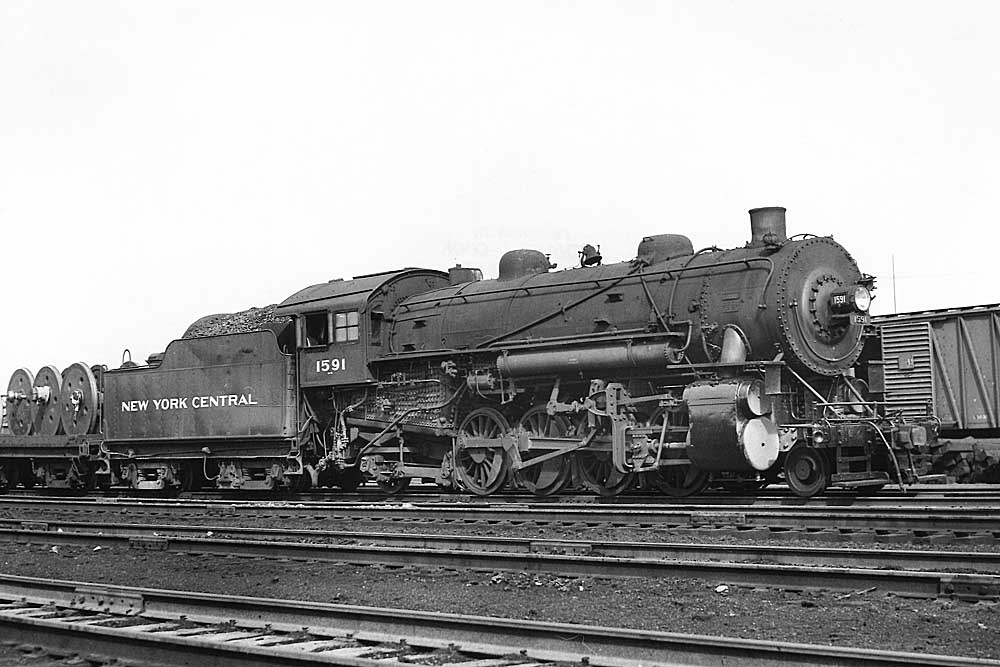
Versatility is a single word that sums up the Mikado-type steam locomotive. This 2-8-2 wheel arrangement became the “one size fits all” in terms of mass usage across North America’s railroads. When it also came to bridging the gap in advanced steam technology at the turn of the 20th century, this locomotive type delivered. […]
Read More…
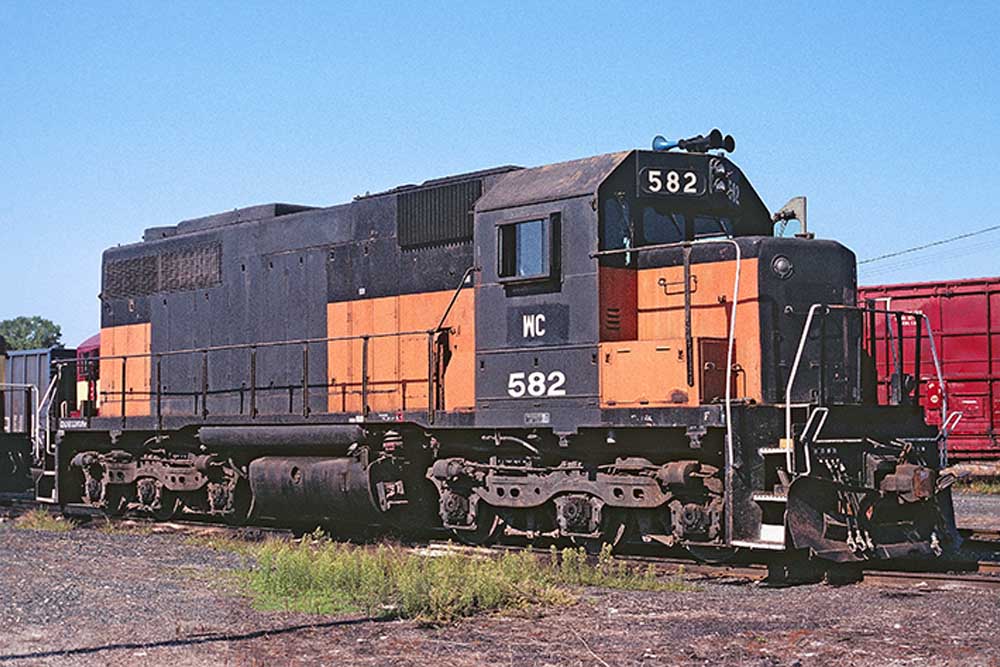
Milwaukee Road’s EMD SDL39 diesel locomotives came from the road’s desire to replace aging Alco RSC2 units in branchline service. The Milwaukee Road custom-ordered the lightweight SDL39 specifically for use on its light-rail branch lines. The railroad bought five of the locomotives in 1969, Nos. 581-585. It followed with an order for another […]
Read More…
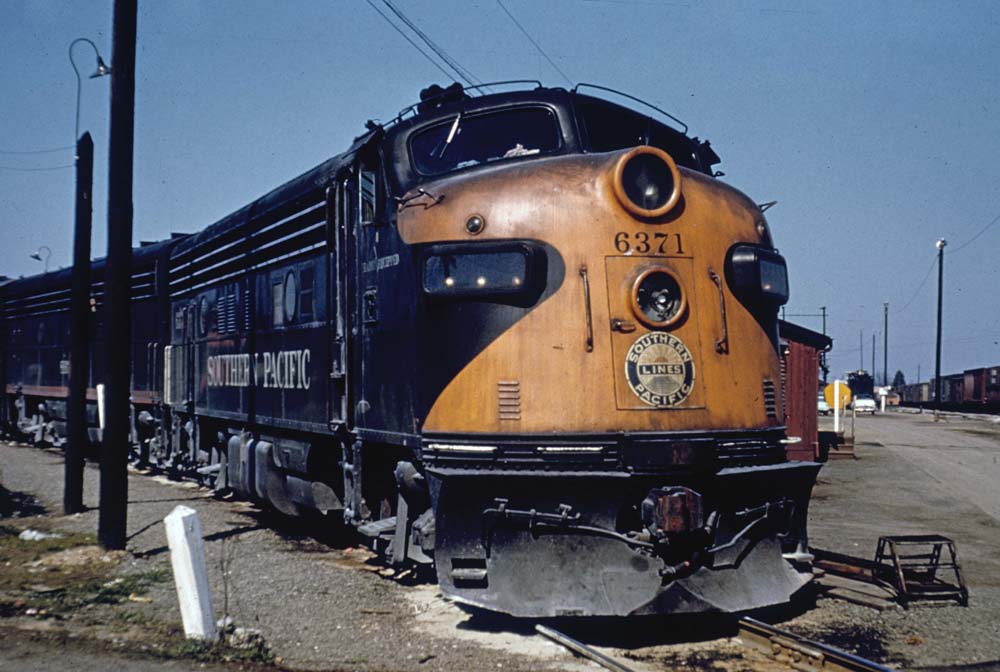
Southern Pacific In 2024, with few exceptions, we have seen the Class I railroads settle down on basic locomotive color schemes. BNSF, for example, moved from orange and green (H1) to orange and black with the introduction of the H4 paint scheme in March 2005. Union Pacific will always have Armour Yellow. But Southern Pacific […]
Read More…
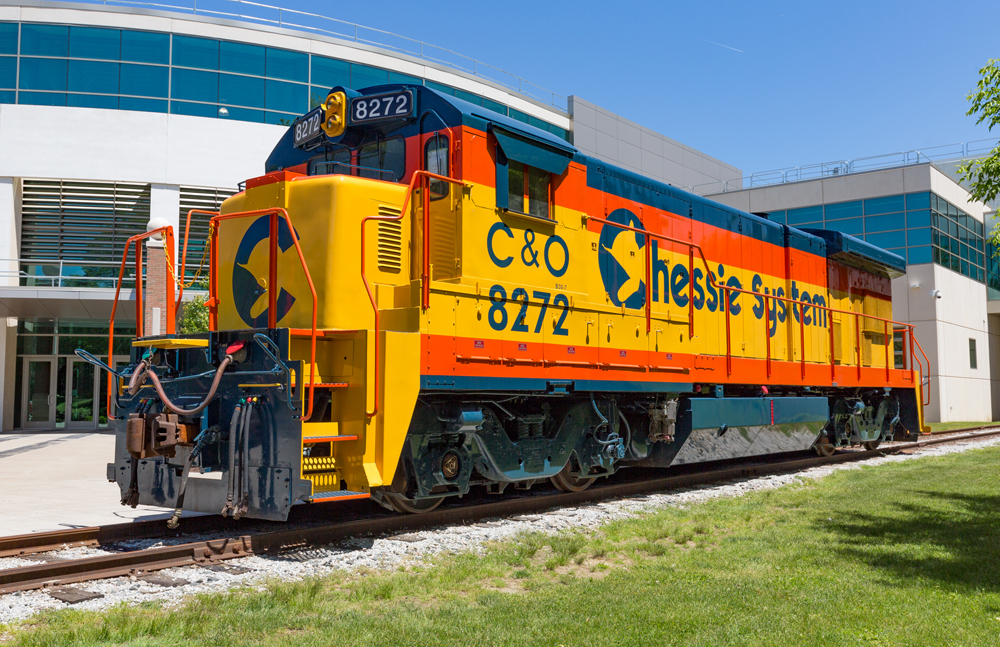
GE’s B30-7 In the late 1970s, General Electric introduced the B30-7, a 16-cylinder, 3,000-hp, four-axle locomotive designed for road service. Virtually identical externally to the B23-7 model offered at the same time, the B30-7 ended up with less orders, though it did sell more variations than its 12-cylinder, 2,250-hp cousin. The launch customer for the […]
Read More…
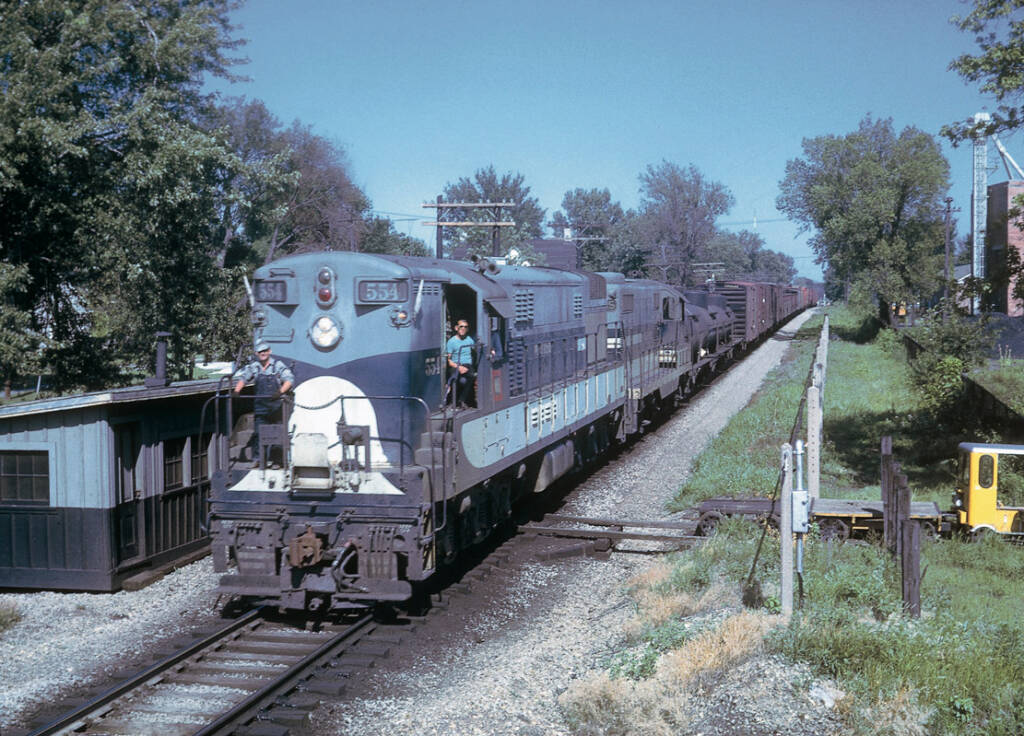
The Train Master diesel locomotive holds a unique spot in history. At its introduction in 1953, it was simply a logical extension of Fairbanks-Morse’s locomotive line, yet the Beloit (Wis.) builder recognized that what Trains Editor David P Morgan termed the “fat, robust, gadget-packed 2,400 hp six-motor hood unit” could become something special. Which it […]
Read More…
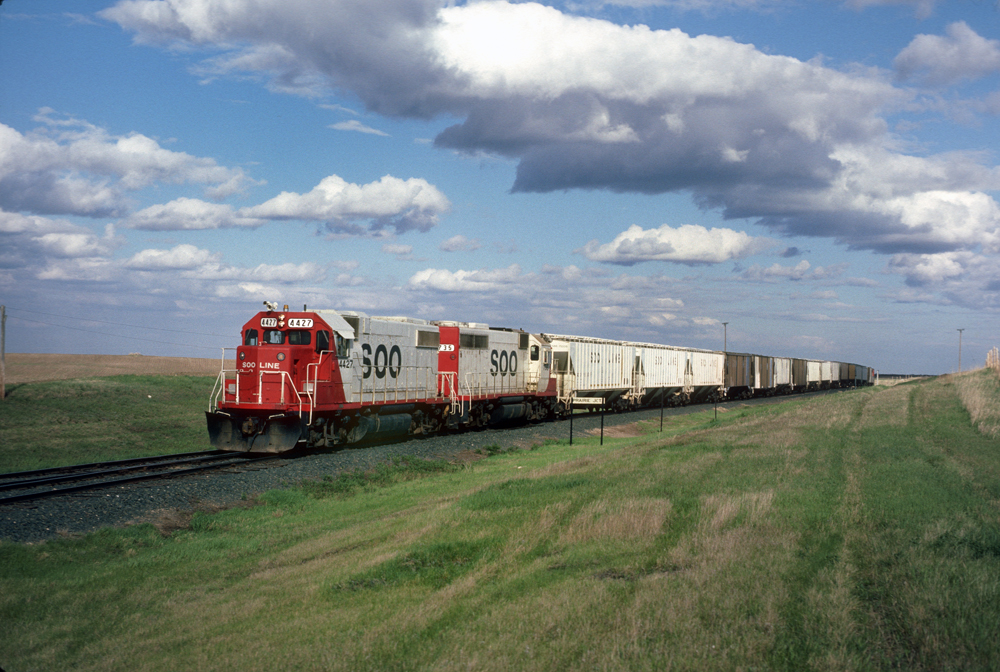
Freight paint schemes When public image was a big deal for railroads, many of them went out of their way to put together great looking freight locomotive paint schemes. Passenger locomotives were an obvious choice, but for many, just as much care went into a suitable freight scheme After all, a train stopping traffic at […]
Read More…
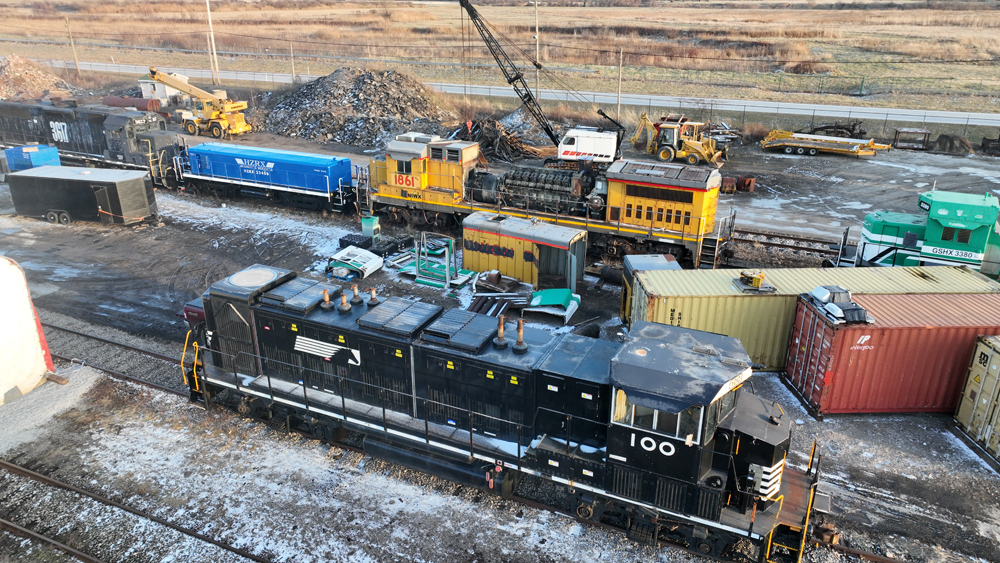
A primary selling point At the time, gensets seemed like a good idea. Efficient, small, and imminently capable, they would be able to do everything an industrial switcher or small road unit could, but while using less fuel and producing fewer emissions. In environmentally conscious areas, and those with legitimately bad air quality, anything that […]
Read More…
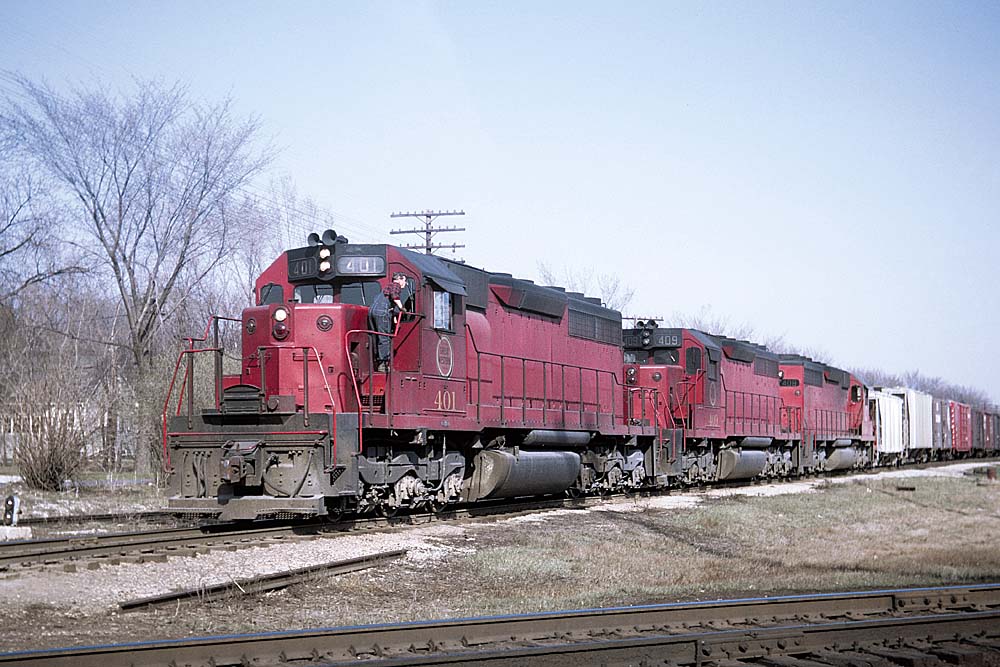
For railroading, the EMD SD40, was a stellar standout. Between January 1966 and August 1972, more than 1,250 units were built, with orders coming from most major railroads. Through upgrades and rebuildings, many are still working today, some still on mainline trains, others rebuilt and earning their keep on short lines. So well […]
Read More…
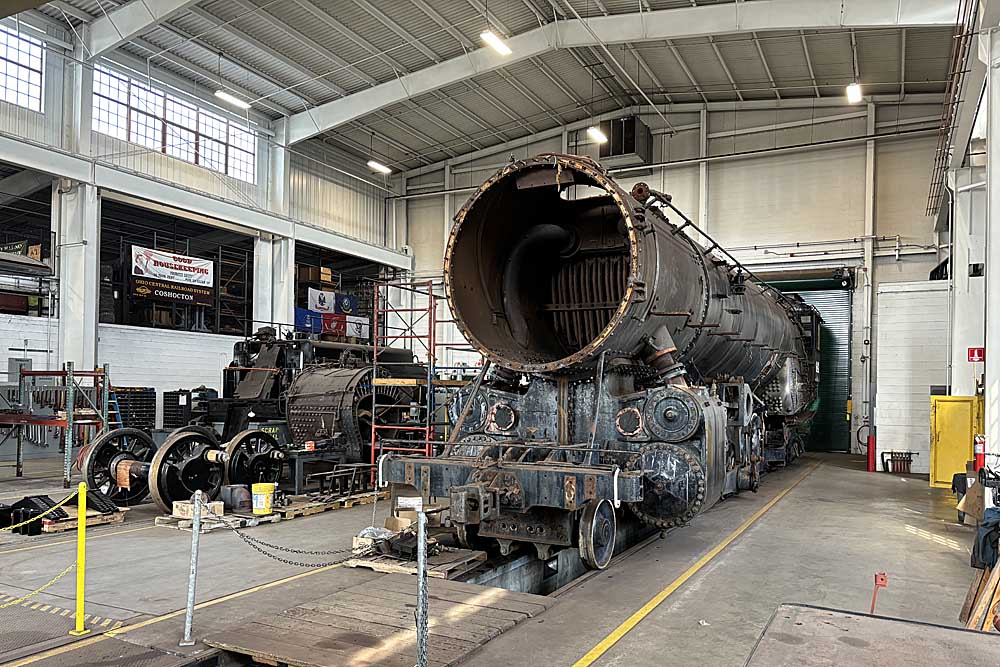
If there’s one thing you could never accuse the late Jerry Joe Jacobson of, it was thinking small. At every turn in his remarkable career as a railroader and preservationist, he went big. Really big. When he got started in the shortline business 40 years ago, he began with a modest 35-mile former New York […]
Read More…
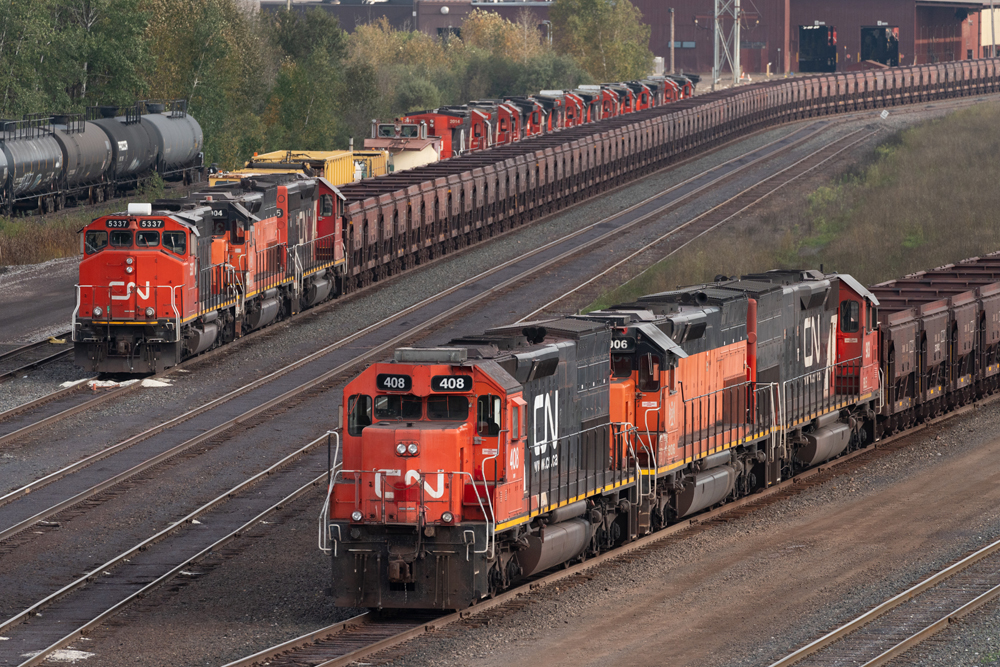
Canadian National’s roster Among the half dozen Class I railroads in North America, one stands out among them in terms of locomotive variety, Canadian National. The contrast of motive power on its roster is unique, with many models only found on CN. There is over six decades’ difference between the oldest and newest models on […]
Read More…












